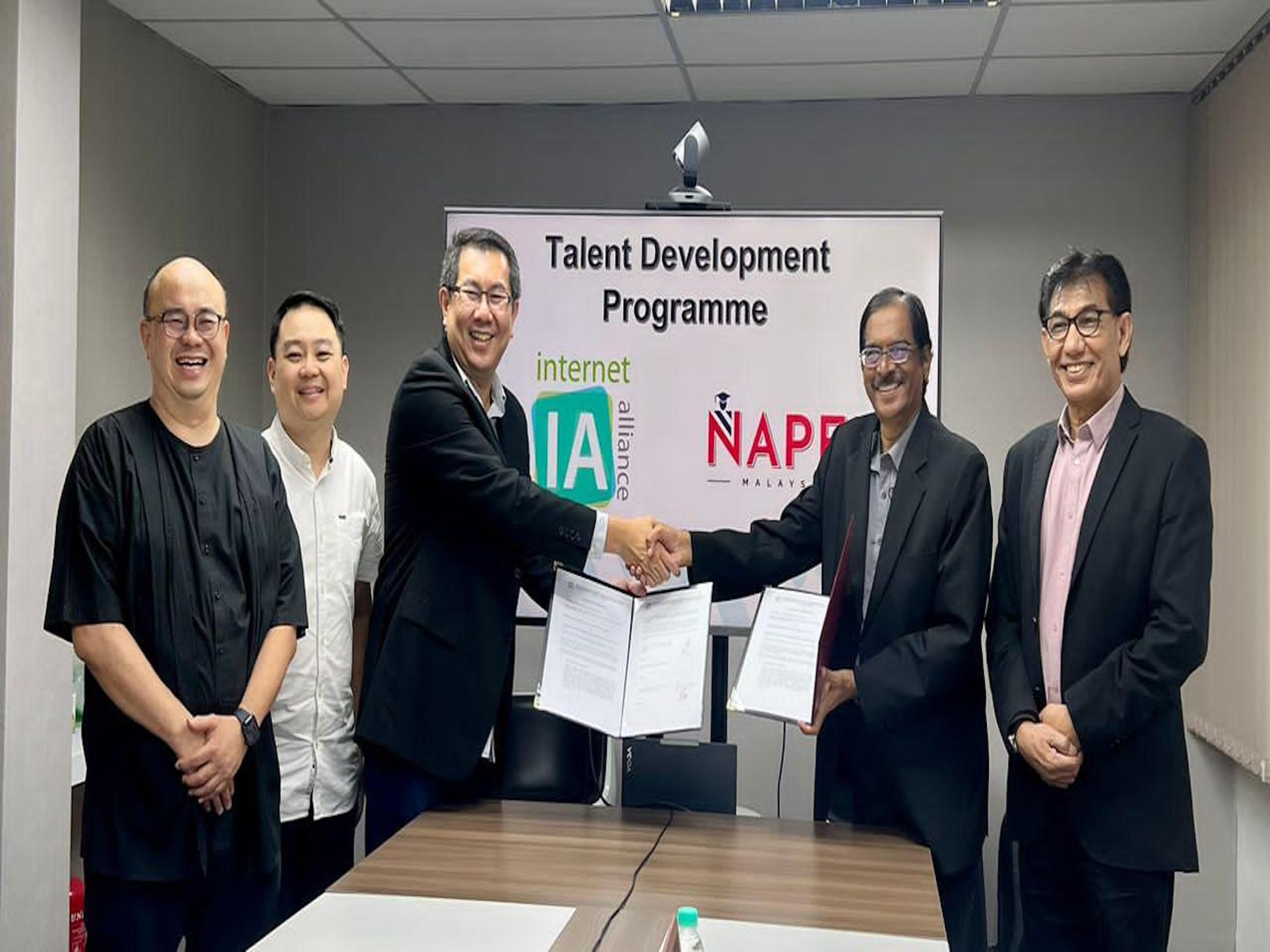Internet Alliance Malaysia, a non-profit organisation that represents Malaysia’s major pool of internet service and digital infrastructure providers, has announced the launch of its Talent Development Programme. In partnership with National Association of Private Educational Institutions (NAPEI) and Malaysian Digital Association (MDA), the initiative aims to nurture future-ready digital talent to fill the growing demand for tech careers in the digital economy. The programme is supported by more than 130 member companies that are actively seeking to fulfil various roles due to the industry’s growth.
This partnership comes at a time when the need for digitally savvy talent is becoming increasingly crucial. As a strong digital investment hub in ASEAN, Malaysia’s tech economy received more than MYR 7 billion in investments in just half a year. This has created a huge demand for highly skilled talents in data science, software, programming, fintech, and cybersecurity — even while the nation struggles with brain drain in key tech industries.

“With Malaysia currently strengthening its digital commitments and educational infrastructure, Internet Alliance believes more strongly now than ever that talent cultivation is a collaborative effort between many parties: academia, industry, government, and society. As an organisation that strives to empower our tech talents, we designed this customised programme to add value to all stakeholders — particularly as a springboard for undergraduates to seize the infinite opportunities of our vibrant Internet economy,” shares Sunny Ooi, President of Internet Alliance.
The programme’s participating members will serve as coaches and mentors, offering world-class professional training in cloud platforms, digital media, networking, software development and business engagement.
The modules are designed to meet industry demand, in which participants will be exposed to industrial training and hands-on sessions to better prepare the participants for future work placements as well as to increase their employability.

Gavin Loh, Lead for IA’s Talent Development Chapter added, “Aside from putting their practical knowledge into real-life practice, the participating students will also have unique opportunities to interact with CEOs, business owners, and technopreneurs to learn first-hand from their leadership. This exposure will be even more special because of the cultural diversity in our local mentors and business landscape, and we believe such an experience will truly broaden their horizons.”
At the same time, Internet Alliance will also coach these up-and-coming graduates in navigating entrepreneurial culture and competencies. Under this experience, participants will receive training from partnering founders and CEOs on various topics such as sales and marketing, operational management, personal and business financial health, as well as value creation.
The Talent Development Programme is the first in Internet Alliance’s three-phase campaign that aims to upskill, reskill, and empower homegrown talents through ecosystem partnership. The next phase of the campaign will focus primarily to partner with selected academic institutions to provide relevant industry-recognised short courses to wider learners.
Source: Internet Alliance

